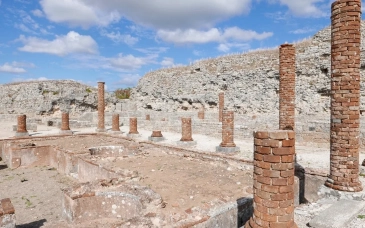In the realms of classical antiquity, the name Eunapius emerges as a historical beacon, shedding light on the lives and events of the past. An invaluable source for historians and scholars, Eunapius finds his place in the esteemed "Dictionary of Classical Antiquities" published in 1898. Join us as we delve into this historical compendium to unearth the contributions of Eunapius, offering a window into a bygone era.
1. Eunapius: A Glimpse into Antiquity: Eunapius, a Greek sophist and historian of the 4th century CE, authored the "Historical Commentaries" or "Historical Miscellanies," a work that spanned from the Trojan War to his own time. In the "Dictionary of Classical Antiquities," his life and works are presented with meticulous detail, providing a comprehensive overview of his significance in ancient historiography.
2. Historical Commentaries: An Epitome of Knowledge: Eunapius' "Historical Commentaries" stands as a valuable compilation, offering a synthesis of historical events, biographical sketches, and philosophical reflections. In the 1898 dictionary, readers are guided through the contours of Eunapius' narrative, gaining insights into the political, social, and cultural landscapes of the ancient world.
3. Eunapius and the Decline of the Roman Empire: Eunapius lived during a pivotal era marked by the decline of the Roman Empire. His historical accounts and observations, encapsulated in the dictionary, provide a nuanced understanding of the challenges, upheavals, and intellectual currents that characterized this transformative period.
4. Literary Style and Influence: Eunapius, known for his eloquent prose and rhetorical finesse, left an indelible mark on the literary landscape of late antiquity. The 1898 dictionary meticulously explores the nuances of his writing style, shedding light on how his works influenced later historians and writers.
5. Reception and Critique: Within the pages of the "Dictionary of Classical Antiquities," Eunapius is presented not only as a chronicler but also as a figure subject to critique and interpretation. The commentary on his life and works reveals the perspectives of scholars in 1898, adding a layer of historical context to the study of Eunapius.
6. Eunapius' Legacy in Modern Scholarship: The dictionary serves as a bridge between the classical past and the scholarly pursuits of the late 19th century. Eunapius' legacy is explored in the context of the evolving methodologies and perspectives of modern historians, demonstrating his enduring relevance.
Eunapius in the "Dictionary of Classical Antiquities" (1898) becomes more than a historical entry; it becomes a portal to the past, allowing us to traverse the intellectual landscapes of both ancient and 19th-century scholarship. As we unravel the layers of Eunapius' contributions, we are reminded of the continuous dialogue between historians across the ages, each contributing to the ongoing exploration of our shared human history.

